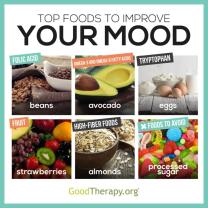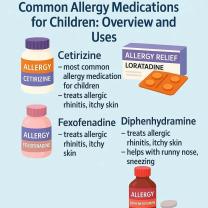What is the best diet for older adults?
The best diet for older adults should prioritize nutrient-dense foods that support overall health, address specific age-related concerns, and help prevent or manage chronic conditions commonly associated with aging. Keep in mind that individual nutritional needs can vary based on factors such as health status, activity level, and personal preferences. Here's a comprehensive guide to a balanced and healthy diet for older adults:
Fruits and Vegetables:
- Aim to fill half your plate with a variety of colorful fruits and vegetables. These foods provide essential vitamins, minerals, antioxidants, and fiber, supporting immune function, heart health, and digestive health.
Whole Grains:
- Choose whole grains such as brown rice, quinoa, whole wheat, oats, and whole-grain bread. Whole grains provide fiber, vitamins, and minerals, helping with digestive health and providing sustained energy.
Protein Sources:
- Include a variety of protein sources in your diet, such as lean meats, poultry, fish, eggs, dairy products, legumes, nuts, and seeds. Protein is essential for maintaining muscle mass, supporting immune function, and promoting overall health.
Healthy Fats:
- Include sources of healthy fats in your diet, such as avocados, nuts, seeds, olive oil, and fatty fish like salmon. These fats support heart health, cognitive function, and nutrient absorption.
Calcium and Vitamin D:
- Incorporate dairy products, fortified plant-based milk, and leafy green vegetables for calcium, which is crucial for bone health. Additionally, get enough vitamin D through sunlight exposure, fortified foods, or supplements to enhance calcium absorption.
Hydration:
- Stay well-hydrated by drinking an adequate amount of water throughout the day. Dehydration can be a concern for older adults, so it's important to monitor fluid intake.
Fiber-Rich Foods:
- Include fiber-rich foods like whole grains, fruits, vegetables, legumes, and nuts to support digestive health, regulate blood sugar levels, and manage weight.
Limit Added Sugars and Salt:
- Minimize the consumption of foods and beverages high in added sugars and limit salt intake to promote heart health and prevent conditions like hypertension.
Omega-3 Fatty Acids:
- Include sources of omega-3 fatty acids, such as fatty fish (salmon, mackerel), flaxseeds, chia seeds, and walnuts. Omega-3s support heart health and may have anti-inflammatory properties.
Moderate Portion Sizes:
- Pay attention to portion sizes to avoid overeating. As metabolism may slow down with age, it's important to consume the appropriate amount of calories to maintain a healthy weight.
Limit Processed Foods:
- Minimize the intake of processed and highly refined foods. Whole, minimally processed foods provide a more comprehensive range of nutrients.
Consideration of Specific Needs:
- Address specific dietary needs based on individual health conditions. For example, individuals with certain medical conditions may need to follow specialized diets, such as those for diabetes, heart health, or kidney disease.
Regular Physical Activity:
- Complement a healthy diet with regular physical activity. Exercise helps maintain muscle mass, bone density, and overall physical function.
Regular Check-ups:
- Regularly consult with healthcare professionals, including registered dietitians, to ensure that your diet meets your nutritional needs and addresses any health concerns.
Remember, it's essential for older adults to consult with healthcare professionals to tailor dietary recommendations based on individual health status and requirements. A balanced and varied diet, combined with an active lifestyle, plays a crucial role in promoting overall well-being and healthy aging.
Navigating nutrition in later years: What is the best diet for older adults?
The best diet for older adults is one that is nutrient-rich and easy to digest. It should include a variety of foods from all food groups, with an emphasis on protein, fruits, vegetables, and whole grains. It is also important to limit processed foods, sugary drinks, and unhealthy fats.
Here is a sample meal plan for older adults:
Breakfast:
- Oatmeal with berries and nuts
- Yogurt with fruit and granola
- Eggs with whole-wheat toast and avocado
Lunch:
- Salad with grilled chicken or fish
- Soup and sandwich on whole-wheat bread
- Leftovers from dinner
Dinner:
- Salmon with roasted vegetables
- Chicken stir-fry with brown rice
- Lentil soup
Snacks:
- Fruits and vegetables
- Nuts and seeds
- Yogurt
Exploring dietary recommendations and considerations for the aging population
Older adults may have specific dietary needs due to age-related changes in their bodies. For example, they may need more protein to maintain muscle mass, more calcium and vitamin D for bone health, and more fiber for digestion. They may also be more sensitive to caffeine and alcohol.
Here are some specific dietary recommendations for older adults:
- Aim for 1.2 grams of protein per kilogram of body weight each day.
- Consume 1,200 milligrams of calcium per day.
- Get 600 IU of vitamin D per day.
- Eat 25-30 grams of fiber per day.
- Limit caffeine intake to 400 milligrams per day.
- Limit alcohol intake to one drink per day for women and two drinks per day for men.
Tips for creating a personalized and sustainable diet plan for older individuals
When creating a personalized diet plan for an older individual, it is important to consider their individual needs and preferences. For example, some older adults may have difficulty cooking for themselves, while others may enjoy cooking and experimenting with new recipes. It is also important to consider any dietary restrictions or allergies.
Here are some tips for creating a personalized and sustainable diet plan for older individuals:
- Start by talking to a doctor or registered dietitian. They can help you assess your individual needs and create a plan that is right for you.
- Make small changes gradually. Don't try to change everything at once. Start by making small changes to your diet that you can stick with over time.
- Make healthy foods convenient. Keep healthy snacks on hand and make healthy meals ahead of time.
- Get social support. Eat meals with friends and family, or join a support group for healthy eating.
By following these tips, older adults can create a personalized and sustainable diet plan that will help them maintain good health and well-being.












